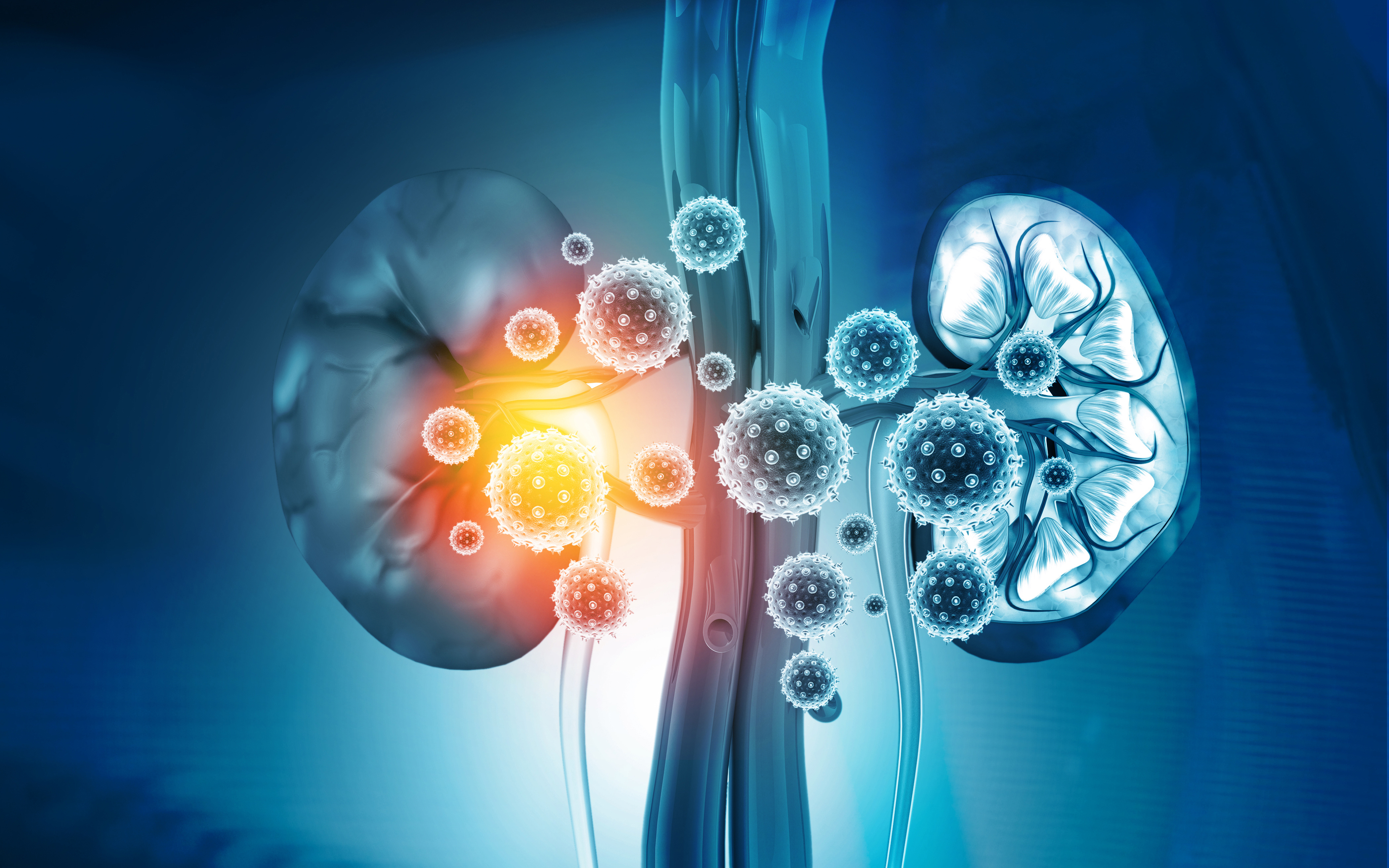News release
From:
The University of Queensland
A University of Queensland-led study has found millions of COVID-19 patients may have undiagnosed acute kidney injury (AKI).
AKI is a condition where the kidneys suddenly fail to filter waste from the blood, which can lead to serious illness or even death.
Existing data indicates approximately 20 per cent of patients admitted to hospital with COVID-19 develop AKI, rising to roughly 40 per cent for those in intensive care.
But UQ PhD candidate and kidney specialist Dr Marina Wainstein said the true numbers could be double those figures.
“Doctors look at the amount of urine a patient passes and the level of a compound called creatinine in the blood, which rises when the kidneys aren’t working well,” she said.
“However, if that creatinine rise occurs before a patient presents to hospital, we can miss the AKI diagnosis and fail to manage the patient appropriately in those early, critical days of hospitalisation.”
Dr Wainstein said when researchers also measured the fall in creatinine levels, which often follows the initial rise, the rate of AKI diagnosis in COVID-19 patients doubled.
“That was a pretty shocking finding,” she said.
Dr Wainstein said ‘missing’ AKI in COVID-19 patients is dangerous.
“Even though the AKI is already starting to improve in hospital, our research shows that these patients have worse in-hospital outcomes and are more likely to die compared to patients with no AKI,” she said.
Dr Wainstein said treatment for AKI can be as simple as checking a patient’s hydration level and stopping medications that can be toxic to the kidneys.
Study supervisor Dr Sally Shrapnel, from UQ’s School of Mathematics and Physics, said collecting and analysing data for the project during the pandemic proved challenging.
“Typically data scientists work with complete, well curated registry data, but in this project it was collected by hospital staff working under extremely onerous conditions in a variety of different resource settings,” she said.
“Curating and cleaning the data turned out to be a significant part of the project.”
Dr Shrapnel said the researchers were able to include data from resource-poor countries, where community-acquired AKI is also more common.
“These people have limited access to healthcare and are more likely to present late in the disease process.”
Dr Shrapnel said a more comprehensive definition of AKI – one which can detect cases that develop in the community - needs to be implemented as soon as possible.
“Now we have the data showing a large gap in AKI diagnosis exists, it’s time to test this definition in a clinical trial so we can identify all AKI patients early and hopefully prevent these awful outcomes.”
The research is published in PLOS Medicine.
Journal/
conference:
PLOS Medicine
Organisation/s:
The University of Queensland, Monash University
Funder:
: In the UK this work was supported by
grants from: the National Institute for Health
Research (NIHR; award CO-CIN-01), the Medical
Research Council (MRC; grant MC_PC_19059),
the NIHR Health Protection Research Unit in
Emerging and Zoonotic Infections at University of
Liverpool in partnership with Public Health England
(PHE), in collaboration with Liverpool School of
Tropical Medicine and the University of Oxford
(NIHR award 200907), UK Foreign,
Commonwealth and Development Office and
Wellcome (215091/Z/18/Z), Bill & Melinda Gates
Foundation (OPP1209135). Internationally this
work has been supported by the CIHR Coronavirus
Rapid Research Funding Opportunity OV2170359,
funding by the Health Research Board of Ireland
[CTN-2014-12]; the Rapid European COVID-19
Emergency Response research (RECOVER)
[H2020 project 101003589] and European Clinical
Research Alliance on Infectious Diseases (ECRAID)
[965313], the Research Council of Norway grant
no 312780, and a philanthropic donation from
Vivaldi Invest A/S owned by Jon Stephenson von
Tetzchner; Innovative Medicines Initiative Joint
Undertaking under Grant Agreement No. 115523
COMBACTE, resources of which are composed of
financial contribution from the European Union’s
Seventh Framework Programme (FP7/2007- 2013)
and EFPIA companies, in-kind contribution; is
sponsored by INSERM and funded by the
REACTing (REsearch & ACtion emergING
infectious diseases) consortium and by a grant of
the French Ministry of Health (PHRC n˚20-0424);
Stiftungsfonds zur Fo¨rderung der Beka¨mpfung der
Tuberkulose und anderer Lungenkrankheiten of the
City of Vienna, Project Number: APCOV22BGM; Italian Ministry of Health “Fondi Ricerca corrente–
L1P6”to IRCCS Ospedale Sacro Cuore–Don
Calabria; grants from Instituto de Salud Carlos III,
Ministerio de Ciencia, Spain; Brazil, National
Council for Scientific and Technological
Development Scholarship number 303953/2018-7.
MW declared funding from the University of
Queensland’s Research and Training Scholarship.
SM, DF, KY and SS declared funding from Artificial
Intelligence for Pandemics (A14PAN) at University
of Queensland. SM & SS declared funding from
The Australian Research Council Centre of
Excellence for Engineered Quantum Systems
(EQUS, CE170100009). AN declared funding from
The Health Research Board of Ireland. JL reports
grants from European Commission RECOVER
Grant Agreement No 101003589 and European
Commission ECRAID-Base Grant Agreement
965313. JPC declared funding from US Center for
Disease Control and Prevention Foundation (site
PI, SCCM Discovery-PREP Covid-19 and
influenza), Herrick Medical LLC (industrysponsored RCT of iv tubing modification for air-inline evacuation, ClinicalTrials.gov NCT04851782.
SK declared funding from Wellcome (222410/Z/21/
Z). MGS reports grants from National Institute of
Health Research UK, Medical Research Council UK,
Health Protection Research Unit in Emerging &
Zoonotic Infections, University of Liverpool. LM
declared funding from the University of Oxford’s
COVID-19 Research Response Fund. SM declared
funding from Canadian Institutes of Health
Research. SS declared funding from the University
of Queensland Strategic funding and University of
Queensland Gender Equity Grant. The funders had
no role in study design, data collection and
analysis, decision to publish, or preparation of the
manuscript. All other authors declared no specific
funding for this work.



 Australia; VIC; QLD
Australia; VIC; QLD


